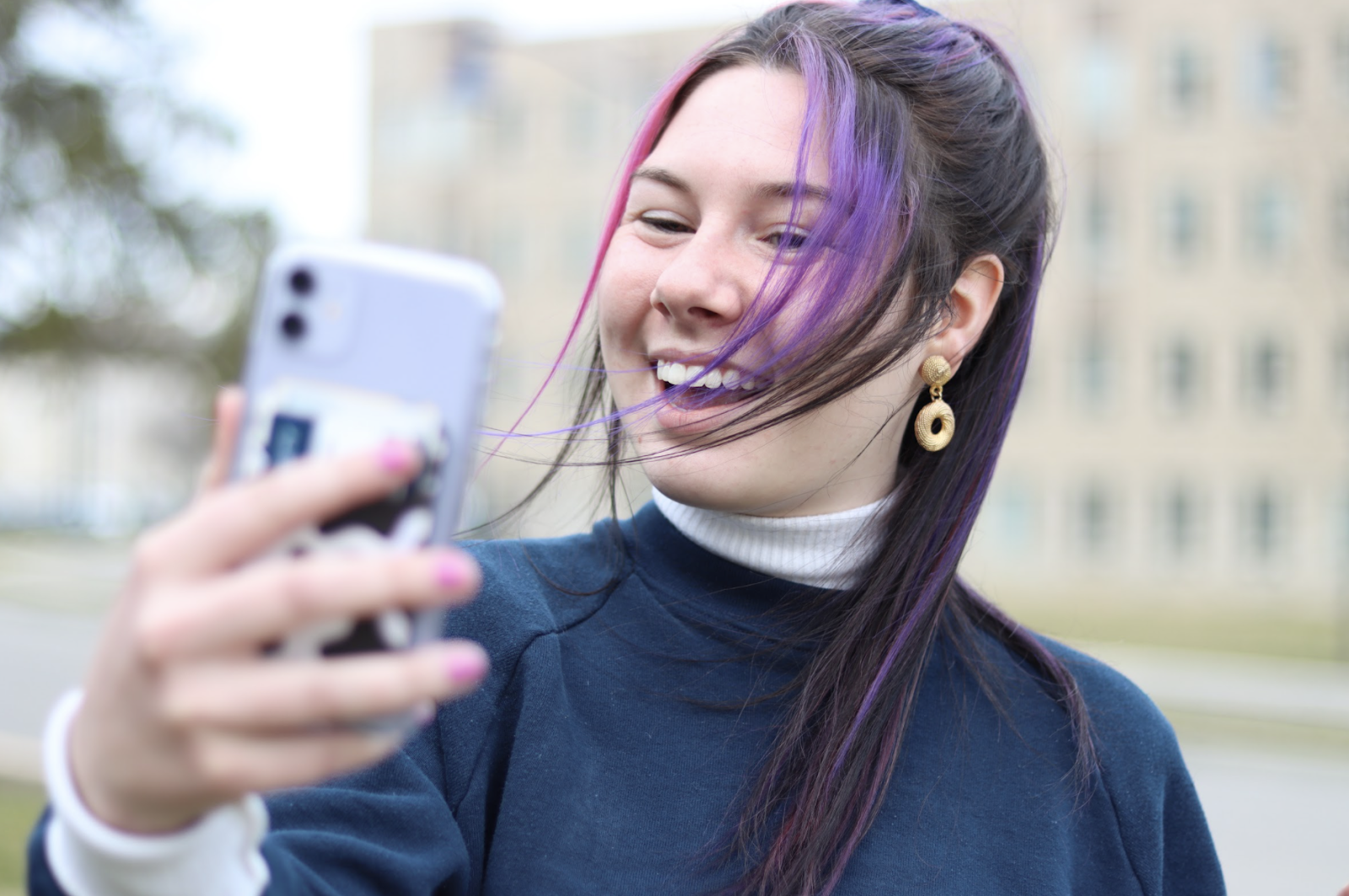Katie Freeman poses for a selfie, sans Snapchat filter. Photo by Francie Wilson.
KATIE FREEMAN | STAFF REPORTER | kmfreema@butler.edu

Katie with no Snapchat filter applied. Photo by Katie Freeman.
The day Snapchat released its now-iconic filter tool in 2015, I watched in awe as my eyes tripled in size and a stream of rainbow-colored vomit poured out of my mouth. These humorous filters filled my friends’ Snapchat stories and transformed the app into a gallery of face swaps, dog-filter and flower-crown selfies.
Snapchat filters have evolved since then, and today, they are highly problematic.
While Snapchat filters have always been created with the intention of changing users’ faces, there has been a significant shift in the types of facial alterations they make. They are no longer as simple as adding dog ears or comically enlarged eyes. Now, Snapchat is saturated with filters that resurface skin, enlarge lips, narrow jaws and make noses smaller.
As I was exploring Snapchat’s newest swipe-over filters, I noticed striking changes to my appearance. The filter named “Catch the Moment” made some particularly jarring changes: the natural tilt of my eyes was straightened, the entire lower half of my face and my nose shrunk, my lips were given a healthy dose of digital filler and enough grain was added on top to make nearly every last one of my freckles and pimples disappear.
I’ve never had perfect skin. I’ve never loved my soft jawline or chubby cheeks. Like many others, I have struggled with self-image and self-esteem issues throughout my life. These insecurities began before I created a single social media account, and as I have gotten older, being consistently exposed to a glossed-over, filtered version of myself has only made things worse.
The addition of these facially-distorting filters is bound to lift society’s already sky-high beauty standards yet another notch higher. It implies to each of Snapchat’s 331 million users that there is something inherently wrong with the way they naturally look and that it should be corrected.
How can we ever feel comfortable and secure in our own skin when we are exposed to an unattainable, ‘perfected’ version of ourselves on a daily basis?

Katie with a filter applied from Snapchat, highlighting the facial changes that are made by the app. Photo by Katie Freeman.
I know my self-image has been greatly influenced by the addition of Snapchat’s face-changing filters. I’ll admit it – I like the way I look when I use them. I hate that I do. But I know that overly-smooth, edited version of my face staring back at me is not actually me.
Despite knowing this, the temptation to throw on a filter every time I open Snapchat is hard to resist. Even on days where I feel the most confident, adding a Snapchat filter to a selfie seems to give me an extra boost.
I love the idea of Snapchat filters. I think they can be a fantastic way to add some spice to a basic selfie, but I hate what they have turned into. We have to keep in mind that filtered Snapchat photos — whether our own or others’ — do not accurately represent the person behind the camera.
There is beauty in every face, freckle, wrinkle and pore, and Snapchat is doing a disservice to society as a whole by attempting to erase people’s uniqueness and individuality.



